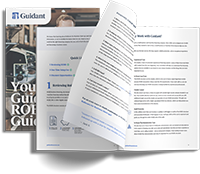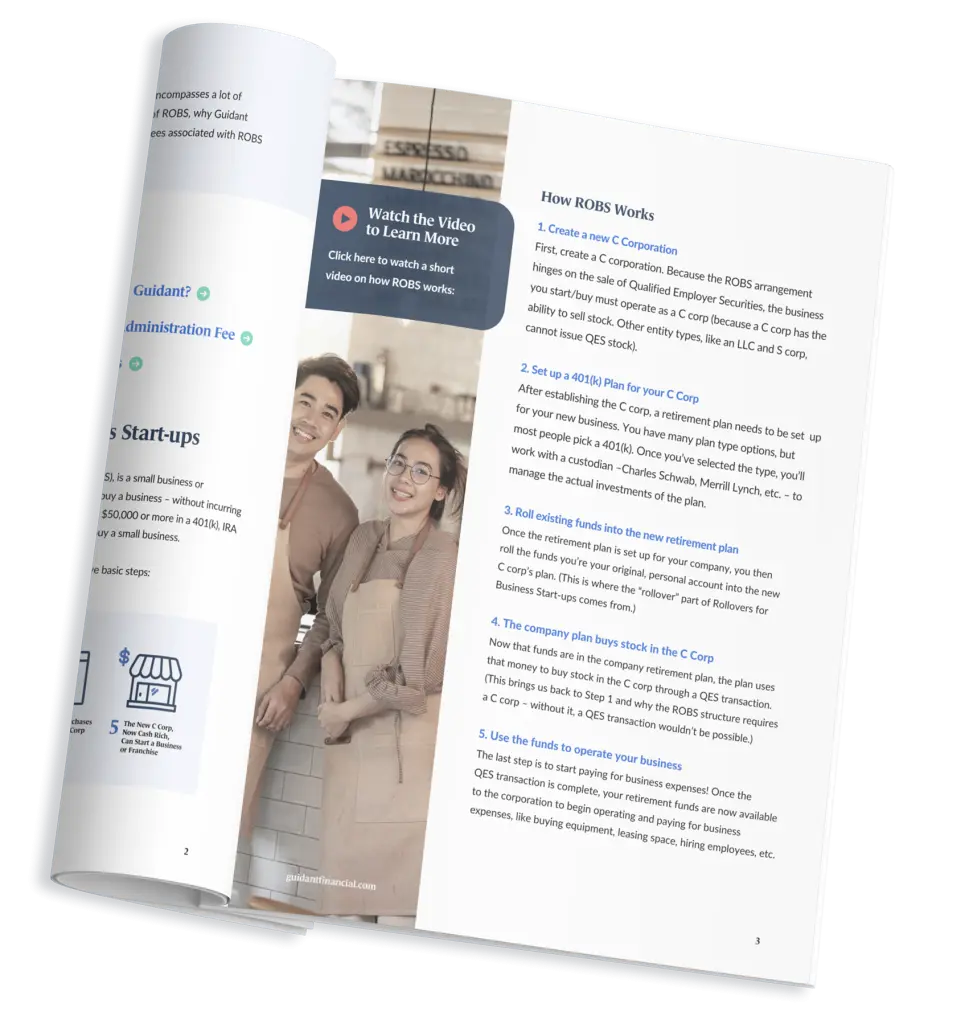Stock Purchase
A stock purchase takes place when one buys an ownership interest in an existing company. In a stock sale, the company and its operations remain intact. The ownership changes, but employees, vendors, customers, and overall operations remain the same. This transaction is the least disruptive to employees and customers but can have personal implications to new owners.
Pros and Cons of a Stock Purchase
| Stock Purchase | Buyer | Seller |
|---|---|---|
| Tax Treatment | Con | Pro |
| Liability | Con | Pro |
| Contracts | Pro | N/A |
Tax Treatment
When the owner of a company sells their stock in the company, the proceeds are often taxed on their personal tax return at the lower capital gain tax rates. These preferred tax rates are a key benefit to the seller of stock.
Liability
When executing a stock purchase, the buyer of the stock is purchasing the entire company and the seller is selling their interest in the company. For the seller, this means that they collect the proceeds of the stock sale and can walk away from the company once the transaction is executed because all contracts, obligations, and assets are held by the company. The seller need not concern themselves with ongoing obligations of the company. This is a key benefit of the seller and a significant risk to the buyer.
Contracts
Customer contracts and vendor relationships can be a material asset to any company because they support the operations of the business. When a buyer purchases the stock of a company, the company and its new owner can continue to perform under the existing contracts without having to renegotiate or spend upfront time and resources to generate new contracts. This is most often a benefit with employees. When purchasing a company via a stock sale, you don’t need to re-onboard employees or update all employment agreements, which can be a time-consuming process for both employer and employee.
While other assignable agreements can save a buyer time, there are sometimes contracts a new purchaser would like to renegotiate or eliminate. In a stock sale, the new buyer doesn’t usually have the leverage to force that and will instead have to abide by the terms of the agreements the seller has in place for the business.
Here’s a simple example:
- Judy is looking to buy a business. Her acquaintance, James, is the sole owner of a gym and is looking to sell 100 percent of his ownership in the business. Judy agrees to purchase 100 percent of the ownership of the business. James sells his stock, pays capital gains tax rates on the stock sale, and avoids the double taxation of the C-corporation. James, the seller, saves on taxes and can walk away from the transaction with ease.
- Judy, wanting to save on costly attorney and accounting fees, did not perform due diligence when purchasing the stock of the company. Her due diligence would have uncovered that the company was short on cash and, to keep the doors open the company failed to remit payroll taxes for the past nine months. This is a serious offense, carrying penalties of jail time. Judy is now fully liable for the consequences of this.
- Because the transactions will be executed through a stock purchase, Judy doesn’t need to worry about the assignability of customer or employee contracts. This means that she can avoid the process of renegotiating contracts and re-onboarding employees which is a significant benefit when purchasing a company through a stock sell.
Tailored Funding Options for You
Asset Purchase
An asset purchase is simply buying an aggregated group of items from a company. The company that is purchasing the assets remains a separate entity from the company selling the assets. This means that the company buying the assets will file a separate tax return and keep separate records (including accounting records). This is not a business combination.
Pros and Cons of an Asset Purchase
| Stock Purchase | Buyer | Seller |
|---|---|---|
| Tax Treatment | Pro | Con |
| Liability | Pro | Con |
| Contracts | Con | N/A |
Tax Treatment
When assets are sold, the seller must pay taxes on the gains of the sale. The buyer doesn’t usually have any taxable events at the time of the purchase. Additionally, the buyer of the assets can begin depreciating the assets right away. This means that they can deduct the costs of the assets from their taxes, resulting in a lower tax bill. This deduction is a significant benefit to the buyer. Conversely, the seller could pay ordinary income tax rates on the sales of assets depending on the type of assets sold.
Liability
In an asset purchase, the buyer is purchasing assets, not a company. This means that the liabilities of the company (both known and unknown to the buyer) aren’t part of the deal. If the buyer were purchasing the stock, the buyer would need to spend considerable time and money on due diligence to ensure there are no undisclosed liabilities. By purchasing the assets, the buyer saves time and money and reduces their risk in the transaction. This is a key benefit to the buyer of the assets. It’s also the main reason why buyers prefer asset sales; they don’t have to deal with the liabilities of the company they’re purchasing the assets from.
Contracts
Customer contracts and the revenue that they generate are often considered an asset to the company when executing an asset sale. But, depending on the wording in the contracts, they may not be able to be assigned to the buyer. If so, each contract must be renegotiated in an asset sale if the buyer wants to retain the customer. This isn’t always the case, so understanding if your agreements have assignability clauses is important when running the business. The same holds true for employee contracts and accounts with various taxing agencies. In an asset purchase, if the buyer will be hiring employees from the company that is closing, the buyer will need to extend new hire offers and open new payroll accounts. The buyer cannot simply pay employees and remit payroll taxes under the seller’s name and payroll accounts.
Here’s another simple example:
- Jill, the owner of ABC Company Gym, wants to retire and liquidate her business. She’s the sole owner of the gym and will ask $200,000 for the sale of the assets. For her business, these assets could be things like workout equipment, mats, and furniture. If Jill sells the assets, she has nothing left in the business and can close her doors and close the company. Because Jill will be collecting cash for the sale of the assets, she’d need to pay taxes on the gains of this sale at the time of the transaction. This immediate tax bill is one of the reasons why sellers are less inclined toward an asset purchase.
- John is looking to start a gym. He’s opened a C-corporation with ROBS funding and is shopping around to get a good deal on gym equipment. John is an experienced business owner and isn’t willing to take on any undisclosed liabilities or pay hefty legal and accounting fees to uncover such hidden liabilities. Examples of liabilities for this type of business could be unpaid bills, business loans, payroll, and even unknown potential lawsuits. An asset sale is perfect for this situation. John can buy the gym equipment for a fair price of $200,000. He records the purchase of these items in his newly formed Corporation on his accounting books and opens his doors for business.
- In finalizing the asset purchase, John performs a detailed review of the customer agreements between ABC Company Gym and its members. The customer agreements allow the contracts to be assigned to another party, so John knows the customers will come along with the transaction. This ability to assume the seller’s customer contracts may not always be possible, so the buyer in an asset purchase would want to verify this at the beginning of the transaction.
Asset vs Stock Purchase: In Summary
There are advantages and disadvantages to buying a business through either an asset or stock purchase. Both methods can be leveraged for success, but it’s important to think through which method works best for you and discuss with your business support professionals.


















